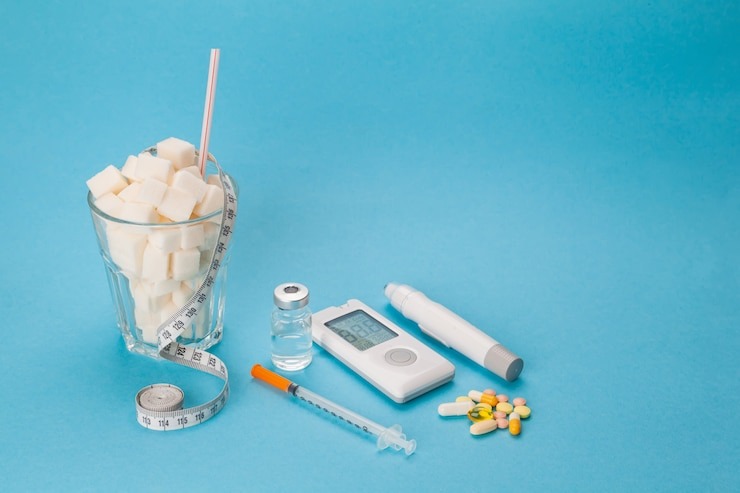Recently, there has been a growing interest in microdosing GLP-1 weight loss medications, especially those like Ozempic, Wegovy, and Mounjaro, especially among people looking for weight loss options with fewer adverse effects. Despite having its roots in psychedelics, microdosing has swiftly spread to other fields, such as diabetes treatment and weight loss. The basic concept is to take a drug in smaller doses, frequently with the hope that it will still have therapeutic effects without the full severity of side effects that come with larger dosages.

Although there has been much anecdotal discussion about the possibility of microdosing GLP-1 drugs, the scientific community is still wary. There is currently no scientific evidence to support microdosing as a safe or effective weight loss strategy, according to medical experts like Sarah R. Barenbaum, MD, an obesity specialist at Cornell University. Despite this, a lot of patients say that when they use lower dosages, they still lose weight and have fewer side effects. However, since microdosing GLP-1s has not been fully investigated in clinical trials, this raises concerns regarding safety, effectiveness, and long-term results.
| Service | Details |
|---|---|
| Name of Medication | Ozempic, Wegovy, Mounjaro, Zepbound |
| Microdosing Popularity | Gaining interest among weight loss seekers for fewer side effects |
| Supporting Anecdotes | Patients claim benefits in weight maintenance and blood sugar management |
| Safety Concerns | No clinical data to support microdosing; potential overdose and contamination risks |
| FDA-Approved Drugs | Opting for FDA-approved GLP-1 drugs recommended for consistent results |
| Healthcare Recommendations | Consultation with healthcare providers recommended before changing dosage |
| Potential Risks | Inadequate disease management, unpredictable side effects, and overdosing |
Why GLP-1 Microdosing Is Both Alluring and Dangerous
Many patients seeking less invasive and more cost-effective weight loss options are now tempted to microdose GLP-1 medications. Some patients, especially those who are worried about side effects or the high cost of these medications, have started self-administering lower doses of these medications instead of taking them as directed. The reasoning behind this strategy is that, without the more potent side effects that frequently accompany higher dosages, a small dose may still have positive effects like appetite suppression and weight maintenance.
But one should not ignore the risks associated with this practice. Experts such as Dr. Caroline Apovian, a Harvard Medical School professor of medicine, have pointed out that there is no scientific evidence to support the safety or efficacy of microdosing GLP-1 medications. Additionally, the FDA does not regulate the safety and consistency of the medications because they are frequently compounded in pharmacies. Because of this lack of regulation, the practice may be more dangerous than it first appears because different potencies could cause patients to be either overdosed or underdosed.
What We Know About the Science of GLP-1 Medications
The hormone glucagon-like peptide-1, or GLP-1, is important for controlling appetite and blood sugar. By imitating this natural hormone, GLP-1-based medications such as Ozempic and Wegovy help people with type 2 diabetes effectively control their blood sugar levels and aid in weight loss. In clinical trials, these drugs have produced impressive outcomes, with many patients reporting significant weight loss and improved blood sugar regulation.
These drugs work well for controlling diabetes and obesity when taken in full doses, but there is currently no evidence that they can be used to control weight when taken in smaller doses. Some people may feel they are “super-responders” to the drugs, feeling benefits even at lower dosages, according to NYU Langone Health’s Dr. Holly F. Lofton. The solid clinical data required to guarantee the safety and effectiveness of the microdosing strategy, however, is not replaced by this anecdotal evidence.
The Uncertain Future of GLP-1 Microdosing
It’s unclear what the future holds for microdosing GLP-1 weight loss medications. Microdosing has attracted attention as a possible remedy because many people are looking for alternatives to more expensive prescription drugs or possible negative side effects. However, more research is required before it can be regarded as a safe and practical option, as medical professionals stress. Before making any changes to their treatment plan, patients should always speak with their healthcare providers due to the possibility of risky behaviors, such as self-administering compounded medications.
It is important to approach this trend cautiously as the medical community continues to evaluate the role of microdosing in weight loss. People searching for weight-management solutions should stick to tried-and-true strategies like diet, exercise, and clinically prescribed dosages of FDA-approved medications until there is solid scientific evidence and FDA approval for this practice.
